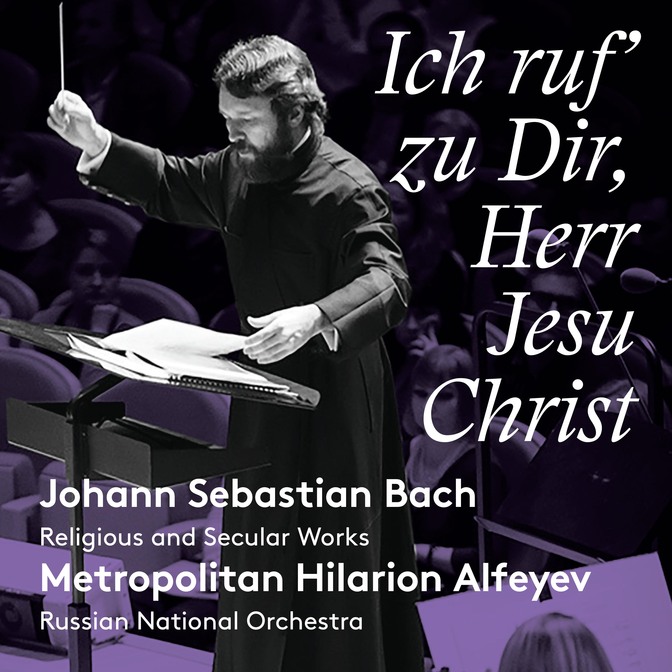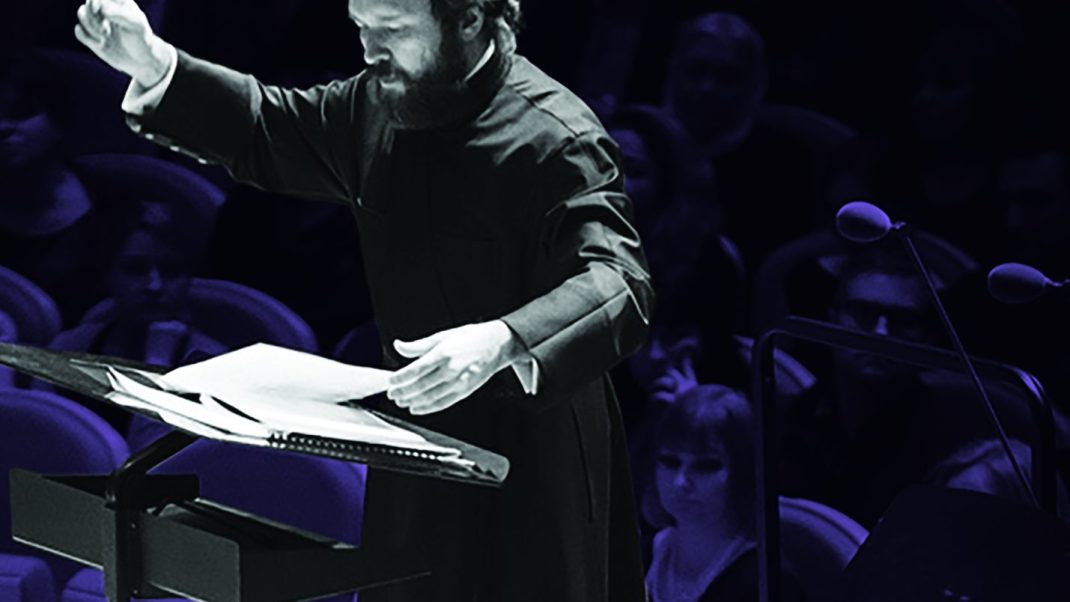CD1
Ich habe genug, BWV 82
Orchestral Suite No. 2 in B minor, BWV 1067
Album information
Russia’s foremost composer Metropolitan Hilarion Alfeyev’s compositions are noted for their deep spirituality and commitment. With this new release, he brings the same sense of awe and wonder to the music of Bach in a series of riveting performances, including the achingly beautiful solo cantata Ich habe genug and the ever-popular Orchestral Suite No. 2. The programme also contains Alfeyev’s breath-taking arrangements of Bach’s organ masterpieces Ich ruf’ zu Dir, Herr Jesu Christ and the colossal Passacaglia and Fugue in C minor.
Bach’s deceptively simple choral prelude, the plaintive Ich ruf’ zu Dir, Herr Jesu Christ, BWV 639 is a masterpiece of humility and restraint. In Alfeyev’s masterly arrangement, the voice of the supplicant is moved between different sections of the orchestra, underscoring the universality of the prayer. Bach’s most famous solo cantata, the haunting Ich habe genug, BWV 82, radiates a profound sense of resignation with its gentle swaying rhythms and exquisite writing for solo oboe; its central aria, Schlummert ein, ihr matten Augen, is an oasis of calm and transcendence with its warmly uplifting bass solo. In a somewhat lighter vein, Bach revels in his mastery of the French style in his Orchestral Suite No. 2 in B minor, BWV 1067, an irresistible collection of dances – both aristocratic and popular – which closes with a mischievous Badinerie. Resplendent with orchestral colour and powerful, full-throated brass, Alfeyev’s arrangement for full orchestra of the mighty Passacaglia and Fugue in C minor BWV 582 for organ is an enthralling conclusion to a compelling programme.
“Bach’s music is not a museum piece. Living in modern times, we have full rights to use the full scale of modern means of expression in order to translate to the listener the outstanding grandeur and timeless beauty of his music.” (Metropolitan Hilarion Alfeyev).







